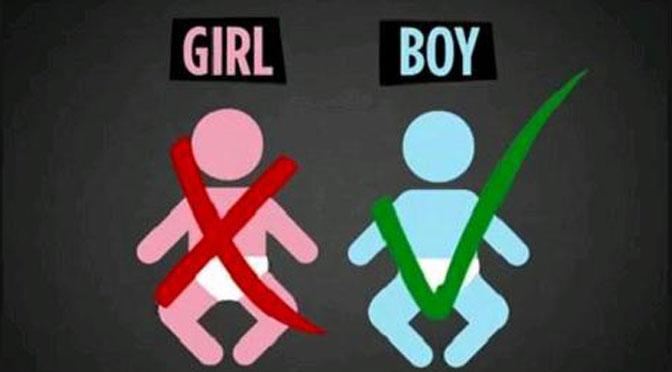Genetic engineering and eugenics have long been featured in science fiction, both in books and movies. Brave New World, Gattaca, Ender’s Game — all works that most people are familiar with, and likely brush off as something that could never happen here.
But to an extent, it already does.
Preborn babies with disabilities, birth defects, or genetic disorders are killed before they can be born. Parents who undergo IVF often screen embryos for “problems,” and if any are found, the embryos are destroyed. Countries that allow assisted suicide and euthanasia have begun allowing healthy people with disabilities to be killed. Oh yes, eugenics is alive and well.
On top of that, the idea of designer babies has long been the topic of discussion, thanks to the rise of IVF. Parents could not only screen their children for any potential disabilities, they could also choose the gender, hair color, eye color… it’s like a living, breathing, American Girls doll that you get to design yourself. Stanford bioethicist Henry Greely is really, really excited about this, and in a chilling op-ed for The Guardian, writes about how one day, we won’t even need to have sex to make babies anymore, and can eliminate diseases, disabilities, and disorders. A brave new world, indeed.
The result will be easy PGD [pre-implantation genetic diagnosis]. A couple who wants children will visit a clinic – he will leave a sperm sample; she will leave a skin sample. A week or two later, the prospective parents will receive information on 100 embryos created from their cells, telling them what the embryos’ genomes predict about their future. Prospective parents will then be asked what they want to be told about each embryo – serious early onset genetic diseases, other diseases, cosmetic traits, behaviours, and, easiest but important to many: gender. Then they will select which embryos to move into the womb for possible pregnancy and birth.
Easy PGD will not produce super-babies. Genes aren’t that important. But it will produce children who have little or no chance of some serious diseases; better than normal chances of avoiding other diseases; preferred hair or eye colours; slightly better chances of high maths, sports, or musical ability; and who are of the parents’ preferred sex. The health and behaviour differences are likely to be about the same as the average differences between being born to rich parents and poor parents – not enormous, but not trivial.
First, it’s worth pointing out that any number of people make contributions to the world that last centuries, even with having disabilities or genetic disorders. Beethoven was deaf. Chopin likely had cystic fibrosis. Miles Davis had sickle cell anemia. John F. Kennedy had Addison’s disease. Abraham Lincoln was suspected to have had Marfan syndrome and bipolar disorder. The list, really, could go on and on. Would we be better off without these people? Who gets to decide if someone’s life is worth living, and how could you possibly tell from looking at an embryo in a petri dish what kind of contributions someone will ultimately make? It’s a horrible way to think. Greely continues:
These would not be designer babies. Parents could only select from the genetic traits they carry. New gene-editing technologies such as CRISPR may eventually make it possible to edit embryos, but easy PGD, and its selected embryos, will be safe, effective, and available years sooner. I suspect selection also will be more attractive to those many parents who want children “like themselves” – but like the best of themselves, not the worst.
… Could it really happen? I think so. Many parents will want it, if only to avoid the 1-2% risk of having a child with a severe early genetic disease. Health systems will find it cost-effective to no longer have to provide care for children who are born sick. Clinics will want the business, and governments will be reluctant to interfere in parental choice – at least in some places.
Actually, designer babies are exactly what these would be. And, yippee! We won’t have to worry about having to pay for kids “born sick” anymore, because they’re just a drain on society, right?
Too many people already treat children like products that they are owed (and that can be thrown away if “defective”). These are people — living human beings– who deserve to be treated with the dignity and integrity that all human beings are inherently owed. Choosing a baby’s gender, eye color, hair color… it’s sick and wrong. These are people! No one is owed a girl because they want one, or a baby with green eyes, or anything else. No one is owed a child, period, much less a child with specific characteristics that would make the parent happy. Children do not exist to be wish fulfillment for parents. And maybe anyone who would want to design their own baby just shouldn’t be a parent.
Technology is going to continue to advance, no matter what we do. But we must continue to speak about the ethics of using technology as it advances. And we have got to stop treating children as nothing more than products to be bought and sold.







